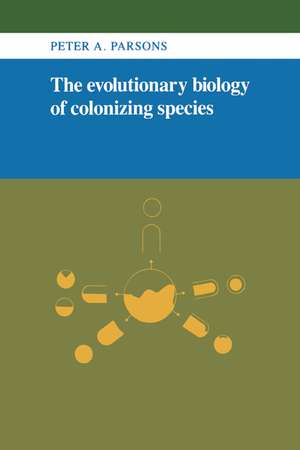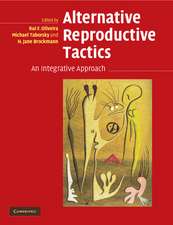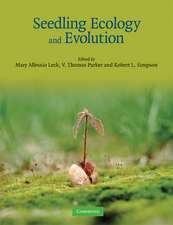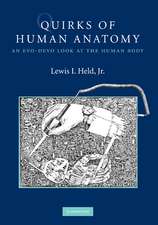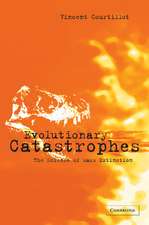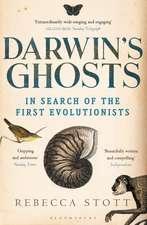The Evolutionary Biology of Colonizing Species
Autor Peter Angas Parsonsen Limba Engleză Paperback – 10 mar 2010
| Toate formatele și edițiile | Preț | Express |
|---|---|---|
| Paperback (1) | 310.25 lei 43-57 zile | |
| Cambridge University Press – 10 mar 2010 | 310.25 lei 43-57 zile | |
| Hardback (1) | 763.99 lei 43-57 zile | |
| Cambridge University Press – 28 iul 1983 | 763.99 lei 43-57 zile |
Preț: 310.25 lei
Nou
Puncte Express: 465
Preț estimativ în valută:
59.36€ • 62.15$ • 49.12£
59.36€ • 62.15$ • 49.12£
Carte tipărită la comandă
Livrare economică 07-21 aprilie
Preluare comenzi: 021 569.72.76
Specificații
ISBN-13: 9780521272452
ISBN-10: 0521272459
Pagini: 276
Dimensiuni: 156 x 234 x 15 mm
Greutate: 0.39 kg
Editura: Cambridge University Press
Colecția Cambridge University Press
Locul publicării:Cambridge, United Kingdom
ISBN-10: 0521272459
Pagini: 276
Dimensiuni: 156 x 234 x 15 mm
Greutate: 0.39 kg
Editura: Cambridge University Press
Colecția Cambridge University Press
Locul publicării:Cambridge, United Kingdom
Cuprins
Preface; 1. Introduction: colonists and habitats; 2. Genetics and ecology; 3. Physical conditions, resources, and ecological phenotypes; 4. Variability in natural populations; 5. Genetic variability, ecological phenotypes, and stressful environments; 6. Colonizing phenotypes and genotypes; 7. Behavioural variability in natural populations; 8. Habitat selection; 9. The ecobehavioural phenotype: generalists and specialists; 10. The ecobehavioural phenotype: biological control and domestication; 11. Parasites and plants; 12. Discussion and conclusions; Appendix; References; Index.
Descriere
Professor Parsons uses the colonizing species as a case study in the dynamics of microevolution at work in living systems.
